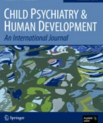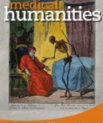Individual differences in learning during decision-making may predict specific harms associated with gambling
Article published in Addictive Behaviors
Abstract
Problem gambling has been linked to impairments in decision-making under uncertainty. Problem gamblers are more likely to favor high-risk, high-reward, and short-term gains over more advantageous choice alternatives, and this preference has been linked to impaired learning about decision outcomes. In this paper we link specific learning processes in decision-making to specific harms related to problem gambling. We asked a group of 140 casual gamblers to 1) perform a canonical decision-making task (the Iowa Gambling Task) online, and 2) to complete a self-report survey (the GamTest) designed to measure self-perceived harm caused by their gambling. We used a reinforcement learning model to explain individual differences in the decision task, and related individuals’ model parameters to the specific problem areas reported using the questionnaire. We found that people who learned more from gains than from losses on the task were more likely to report overall gambling problems, and problems specifically related to money. We also found that people whose learning was more driven by the frequency of rewards were more likely to report problems related to the amount of time spent gambling, as well as social problems. We discuss possible psychological and neural processes mediating learning and gambling related harms, and we discuss the relevance of our approach to the diagnosis of problem gambling and its consequences.
Article
Kildahl, N., Hansen, S., Brevers, D. and Skewes, j.: Individual differences in learning during decision-making may predict specific harms associated with gambling. Addictive Behaviors, Volume 110, November 2020.
Contact
Joshua Skewes, Associate Professor
IMC and School of Communication and Culture



